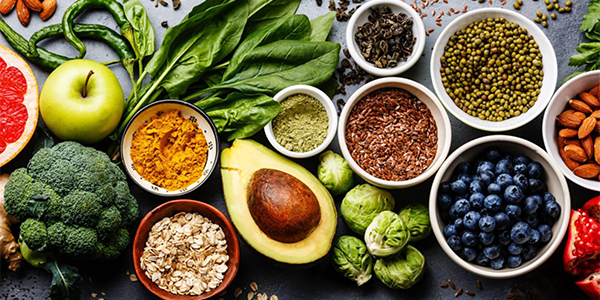Whether you are trying to get that perfect summer body or trying to lose those few extra pounds you’re carrying, weight loss can be an amazing experience. During your research online or interactions with your colleagues and friends, one term you must have heard is the low carb diet.
Celebrities, from Megan Fox to Jennifer Aniston, credit their ageless skin and perfectly toned bodies to low-carb diets. So what is a low-carb diet? Let’s find out.
What is a low-carb diet?
A low-carb diet essentially restricts your carbohydrate intake. People under this diet, try to get more of their nutrient requirements from proteins, and healthy fats. This diet restricts carbohydrates such as sugary foods, bread and so on.
Even though these are sometimes alternatively used for keto diets, not all low-carb diets cause ketosis. Nevertheless, this type of diet is an excellent choice for people who want to stay on the lean end of the spectrum.
Basics of a Low Carb diet
Studies show that low-carb diets induce more weight loss than low fat diets and improve numerous other health markers such as blood sugar, cholesterol and triglycerides.
There are plenty of ways to implement a low-carb diet, ranging from a Mediterranean low-carb diet to the Atkins low-carb diet. Depending on your conditions and lifestyle factors, figure out which one works best for you.
Foods to Avoid
Here are some foods you should avoid if you’re on a low-carb diet:
- Added Sugar
Bye bye soft drinks, ice cream, and almost all of your usual go to confectionaries.
- Highly Processed Foods
If it looks like it was made in a food factory, stay away from it.
- Starches
Consume starchy vegetables with high glycemic indices in moderation.
- Alcohol
You never realize how many carbs you consume while taking alcohol. A glass of beer may contain anywhere from 2 to 3 grams of carbs.
What should you eat?
Generally speaking, your diet should consist of real, unprocessed low-carb foods. As a rule of thumb, keep your diet filled with protein rich foods such as fish, and eggs. Do not leave out healthy fats, fruits and veggies.
But sometimes your diet might feel a bit bland or if you are vegan, then meeting your protein requirements may not be very easy. But guess what, we might have just perfect options for you.
- Raw Nut Butters
These high fat vegan foods can make a tasty addition to your pantry. Slather over a simple toast or go for a vegan gluten-free pancake, nut butters are super versatile.
No pantry is ever complete without a jar of good ol’ peanut butter. We don’t add sugar or oil to our peanut butter, ensuring that you get the best natural product available. Crunchy peanut butter or creamy, we got it just the way you like it. To buy raw peanut butter choose here.
- Raw Seed Butters
Are allergies keeping you away from reaping the benefits of nut butters? We got your back covered. Raw seed butters from sunflower to flaxseed are rich in vitamins, minerals, antioxidants, healthy fats and fiber.
Sunflower seed butters may not be the first thing that goes into your mind after a busy day at work. Packed with vitamin E, phenolic acids and flavonoids are perfect for recovery. Drizzle it over your oatmeal or add it to shakes for a thick creamy consistency.
- Topinambur Syrup
If you are like me, life without sweets and confectionaries seem like doom and digging into a brownie feels like heaven. But a low-carb diet means no more sweets and confectionaries, right? Not exactly, we have one last trick up our sleeves, Topinambur syrup!
Cold pressed topinambur roots are concentrated and filtered to produce our 100% pure topinambur syrup. Unlike other natural sweeteners, Topinambur contains inulin and very low amounts of fructose, ensuring that your sweet tooth is satiated without messing up your diet. Our vegan Topinambur syrup can be used to sweeten your teas or cakes. Grab your bottle now from our online store.
At Right Food Only, we strive to bring the realest rawest unprocessed foods to your plate. Our products contain zero sugar and no adulterants. To top it off, we mostly use recyclable glass containers which, unlike plastic containers, don’t emit any substances into our products.

